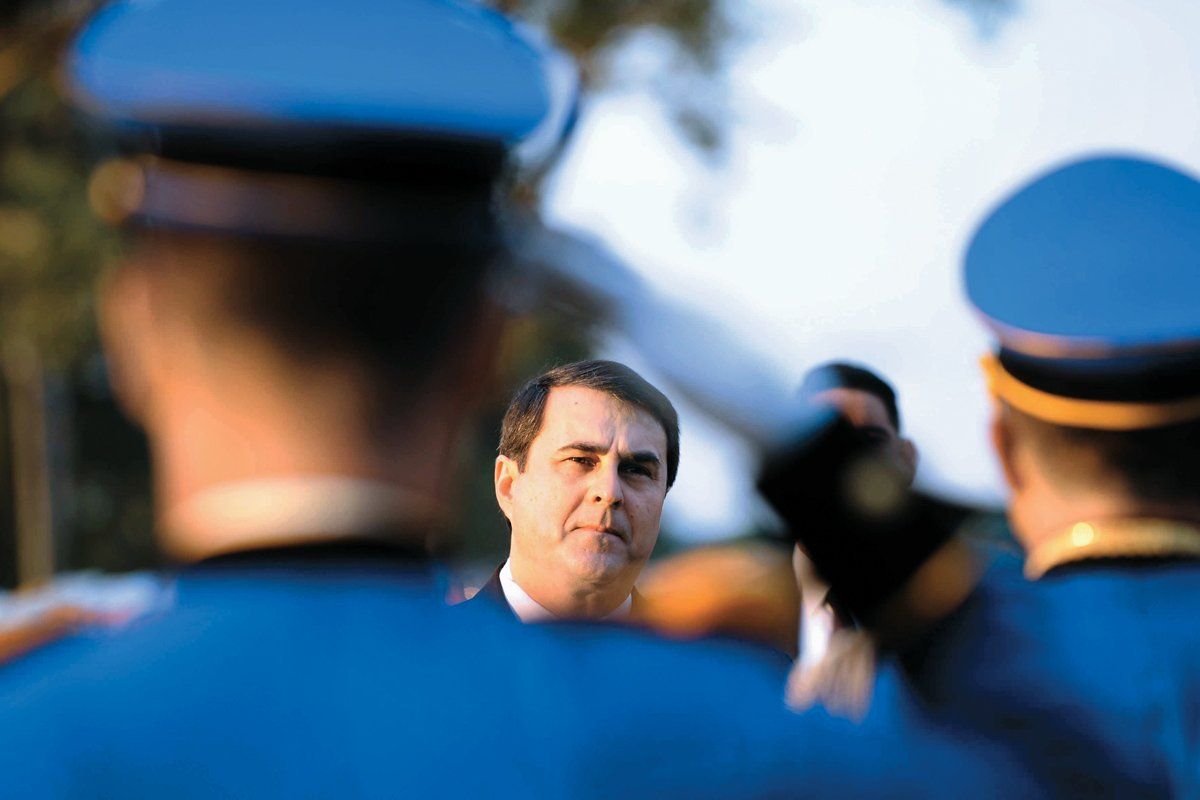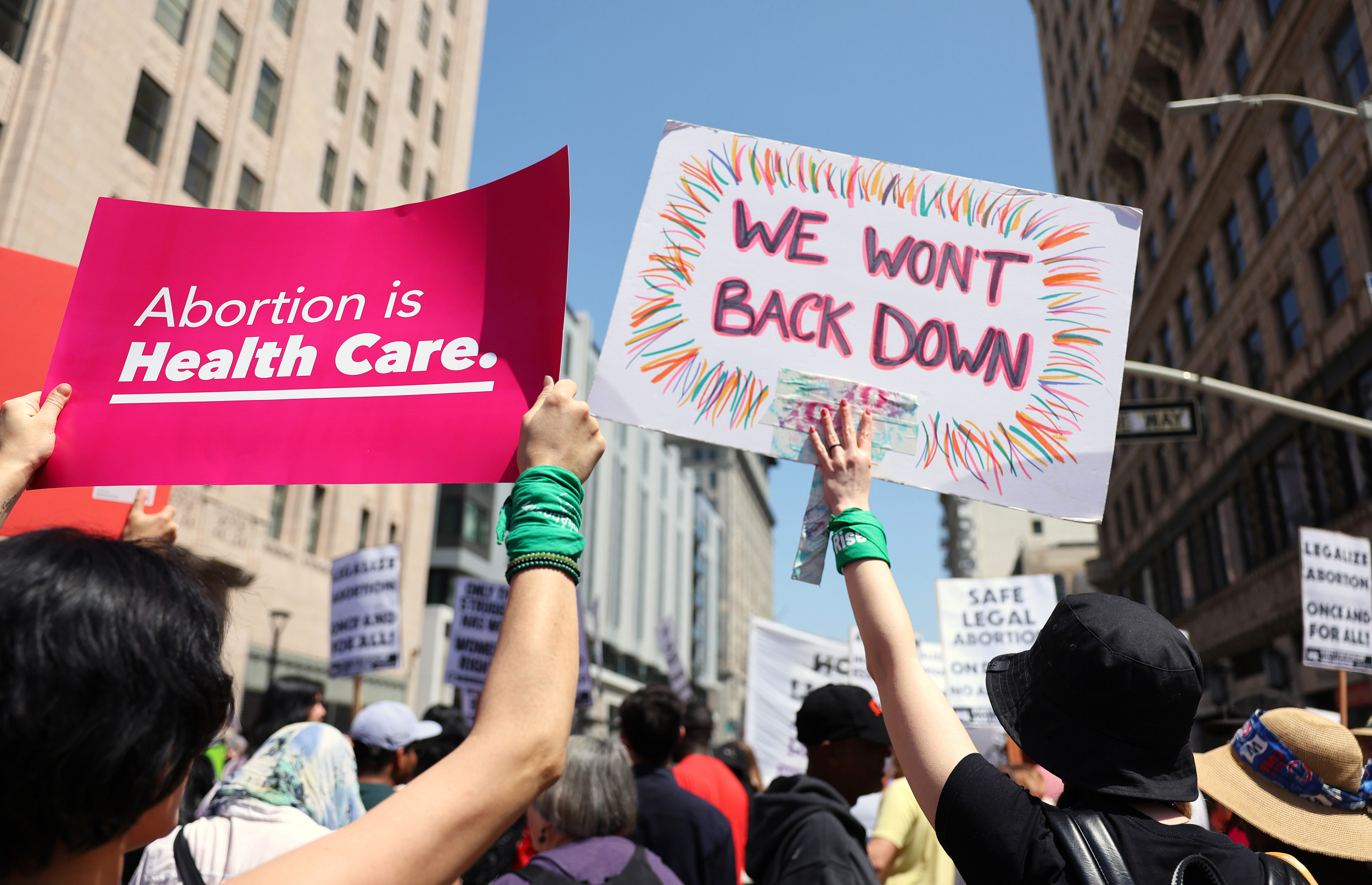
Small, poor, and landlocked, Paraguay doesn't usually exert much influence in the world. The entire country has a population no larger than Rio de Janeiro's (6.5 million) and a trifling $22 billion economy—only about 1 percent the size of Brazil's. But now events in Paraguay have set off an international chain reaction, shaking the region's trade and diplomacy and threatening to disrupt Latin America's progress toward full democratic rule.
The avalanche began with an event all too familiar in Latin America: the thinly legal and indecorously swift removal of an elected head of state by a cabal of political adversaries and turncoats. But times have changed; instead of shrugging off the June 22 lightning impeachment and ouster of Paraguayan president Fernando Lugo, just about every government in Latin America cried foul. Some went further, recalling their ambassadors from Asunción and demanding sanctions against the new regime. No one was more vociferous than Argentina's Cristina Fernández de Kirchner, who deplored the golpe suave, as she called it—the smooth coup—and urged her neighbors to ostracize Federico Franco, the man who has taken over Paraguay's top office. And sure enough, not one Latin government has yet recognized his administration.
But there's reason to suspect that the diplomatic backlash is less about the rule of law than about power politics in the region. As it happens, Lugo's ouster took place on the eve of the June 30 regional summit of Mercosur, the trade bloc that has united Brazil, Argentina, Uruguay, and Paraguay (along with a handful of associate members) for the past 21 years. Although the other three full members stopped short of imposing economic sanctions in response to the upheaval in Asunción, they promptly voted to suspend Paraguay for breaching the pact's commitment to democracy. The 12-member alliance UNASUR did likewise, while members of the Organization of American States castigated Asunción's "parliamentary coup" at an emergency assembly. Within hours, one of the Latin American common market's founding members had become a pariah state.
It was salsa to Hugo Chávez's ears. Paraguay was no longer in a position to thwart the Venezuelan leader's regional ambitions. Venezuela, long a candidate for full membership in the South American common market, had already won the blessings of Mercosur's three other voting members. The only obstacle was Paraguay's opposition-controlled Senate, which feared that Venezuela's bid might become a vehicle for what Chávez calls the Bolivarian revolution—his dream of spreading "21st-century socialism" throughout the Americas. With Paraguay out of action, the trade pact's other members wasted no time scheduling Venezuela's induction for July 31 in Rio de Janeiro. El Comandante will be the guest of honor. And ironically enough, he can thank the ouster of his ally Lugo for making the dream come true.
Latin American democracy is in trouble. The assertion may sound absurd at first. Never has the Western Hemisphere been so free. For the first time in history, the overwhelming majority of Latin America's 583 million people are at liberty to come and go as they please and unafraid to speak their minds. Dictatorial Cuba aside, nearly all Latin leaders are chosen in open and transparent—if sometimes badly flawed—elections. Power is transferred peacefully and according to constitutional prescription. "This is a great achievement for a region that had several countries dominated by authoritarian regimes until a few decades ago," wrote Transparency International's Alejandro Salas and Natalie Baharav last week in an essay on the watchdog group's website.
But the picture isn't so pretty up close, and the evidence goes well beyond Mercosur's brotherly abrazo for Chávez. While civil society and the rule of law have matured in Latin America, so has a new generation of autocrats. Forget about corpulent generals in aviator sunglasses: today's authoritarians are urbane, technologically savvy, and skilled at repurposing due process and popular elections in order to concentrate their power. In fact, they not only tolerate but utilize the mechanisms of constitutional democracy, as William J. Dobson explains in his new book, The Dictator's Learning Curve: Inside the Global Battle for Democracy. "Law, regulation and procedure can be a dictator's most effective tools for strangling an opponent," writes Dobson, a former Newsweek International senior editor now at Slate, "because these weapons appear to be benign, apolitical, and objective."
The modern strongman's playbook is as brazen as it is sophisticated. Political opponents gaining ground? Outflank them by calling a national referendum, grease the system with plenty of government cash, and claim a popular mandate for emasculating congress and tightening the screws on society. Annoyed by pesky critics in the fourth estate? Never mind the carping in the elite print media and cable channels; just keep the mass media on message—pump money into state-run radio and television and decline to renew independent broadcasters' licenses. Inflation spinning out of control? Freeze prices, and when milk and eggs go missing from the supermarket shelves, blame scofflaw capitalists. It's all about what Dobson calls "the art of conceding political space in order to maintain it."
The new authoritarians catch on fast. Since coming to power in 1999, Chávez has become a master at gaming democracy. Again and again he has used government largesse to buy popular support in lopsided national referendums and elections, taking the results as an open license to bully his critics, stack the courts, and assume extraordinary powers with the help of his partners in the legislature. And while he shreds his country's laws and tramples civil liberties, what do his fellow Latin American leaders do? They look the other way, as when he redrew Venezuela's voting districts to favor Chávista candidates in 2010's parliamentary elections. The response has been the same where Chávez's Bolivarian disciples have manhandled the press and the legislatures, intimidated dissenters, and manipulated elections in Bolivia, Ecuador, and Nicaragua to conspicuous silence in the hemisphere.
Although regional trade has soared in the past two decades, commerce has failed to unify Mercosur. Lately its members have succumbed to internal squabbling and beggar-thy-neighbor protectionism on a scale that could shock a Eurocrat. The Kirchner government has imposed a record 168 protectionist measures since 2009, more than any other nation, according to a report by the U.K.-based monitoring group Global Trade Alert.
The ham-handed reaction to the crisis in Asunción could hasten the decline. By sidelining Paraguay and embracing Venezuela, Mercosur has scrapped its own rules. Its charter commits its members to liberalizing trade and upholding democracy. Chávez is dedicated to neither. Of 131 rules that have been adopted by the trade bloc, Venezuela has approved only one (to create an economic and social consultation center, based in Uruguay), notes Brazilian diplomat and trade expert Paulo Roberto de Almeida."How can Venezuela be brought into Mercosur if it has not ratified the ground rules?" he asks.
The problem is not commerce but politics, says Rubens Barbosa, a former Brazilian ambassador who helped negotiate Mercosur's creation in 1991. "The founding idea that Mercosur would be an instrument of trade liberalization has disappeared," he says. "What we have today is a trade platform converted to a political and social forum." Select corporate coffers are likely to profit from Mercosur's admission of Venezuela, with its oil reserves and fat portfolio of government contracts. What's harder to figure is how regional commerce will benefit from granting membership to a regime that is openly hostile to free trade. And try not to think what it could mean for democracy.
Uncommon Knowledge
Newsweek is committed to challenging conventional wisdom and finding connections in the search for common ground.
Newsweek is committed to challenging conventional wisdom and finding connections in the search for common ground.
About the writer
To read how Newsweek uses AI as a newsroom tool, Click here.






